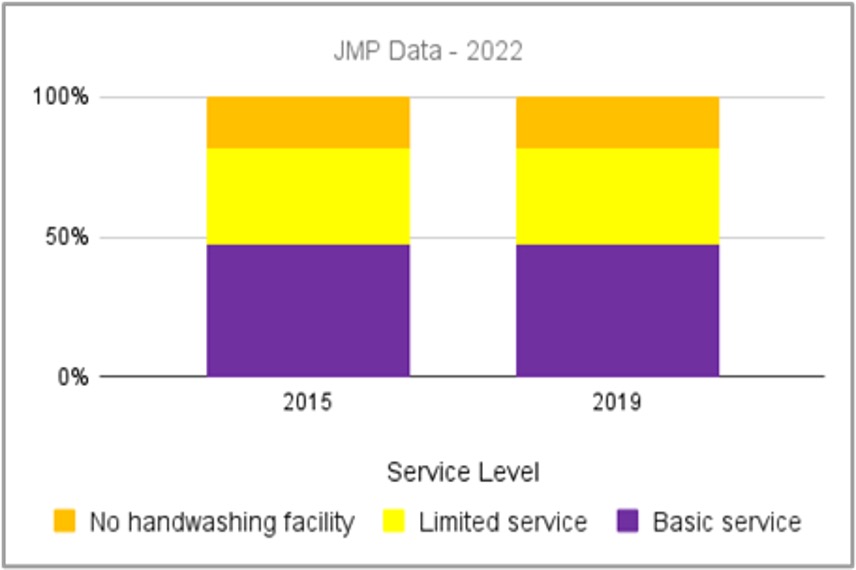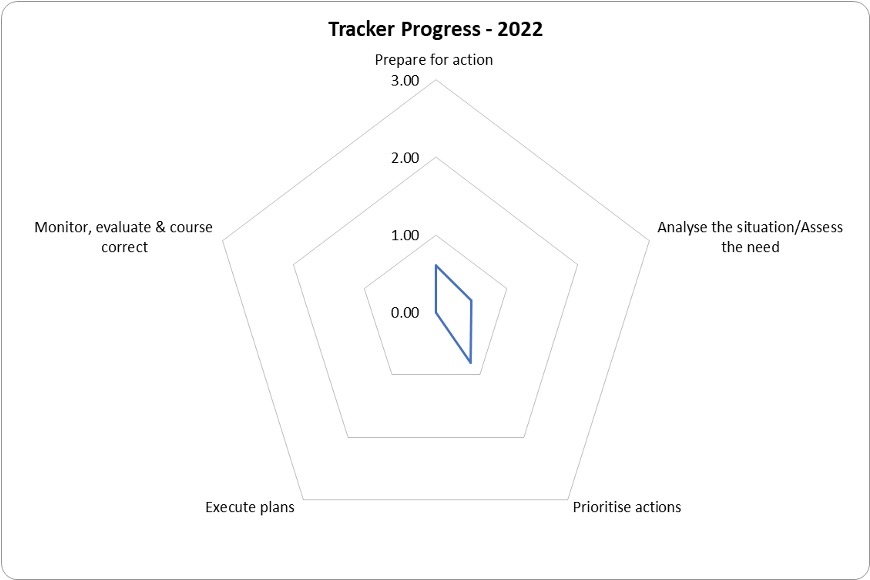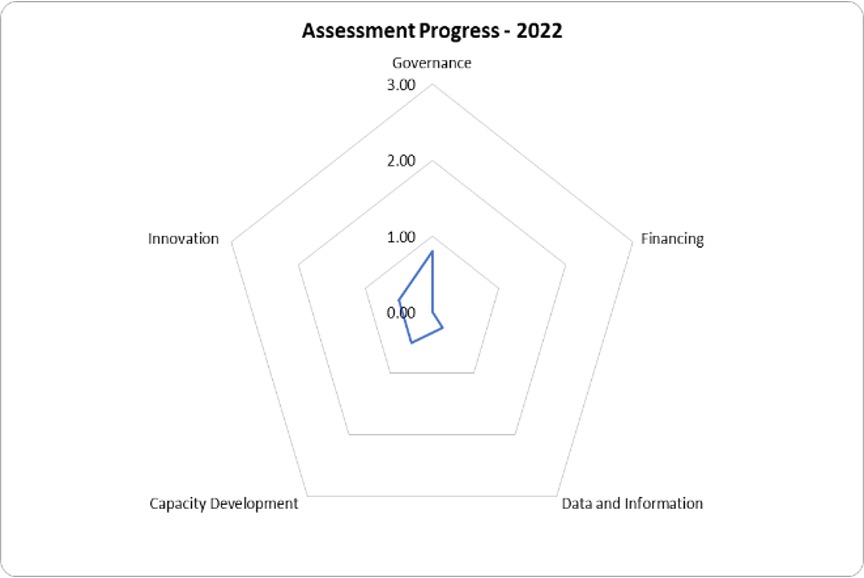Republic of Congo
48% of the Congolese population has access to basic hand hygiene services, the second highest of the African countries surveyed. However, progress was stagnant, with a 0.44% gain, between 2015 and 2019. This stagnation, despite the country’s relatively high level of basic access, suggests certain parameters are impeding progress, which is reflected in Congo’s low scores 0.90 and 0.44 on the HHAFT Tracker and Assessment’s 4-point scale, respectively. With the recent integration of hygiene into the National Policy for Water and Sanitation, progress may accelerate in the coming years, if financing, capacity development, and M&E gaps are adequately addressed.

Tracker

| Milestone | 2023 |
|---|---|
| Prepare for Action | 0.60 |
| Analyse the Situation / Assess the Need | 0.55 |
| Prioritise Actions | 0.80 |
| Execute Plans | 0.00 |
| Monitor, Evaluate and Course Correct | 0.00 |
| Average | 0.38 |
The national sanitation programme and the Healthy Village approach have integrated HH. HH targets and indicators were added to the National Policy for Water and Sanitation which sets indicators and targets and will provide an overall framework for the hygiene sector. However, the policy is only validated, not yet adopted, inhibiting forward progress for execution and M&E/course correction. It is too early to assess progress for other indicators at the current stage of development.
Assessment

| Parameter | 2023 |
|---|---|
| Governance | 0.80 |
| Financing | 0.00 |
| Data and Information | 0.25 |
| Capacity Development | 0.50 |
| Innovation | 0.50 |
| Average | 0.41 |
The lack of an institutional home for HH prior to inclusion in the National Policy may be part of the slow progress in Congo’s HH sector to date, and why activities to advance the sector have not been prioritized. The Ministry of Health has been identified to lead the hand hygiene strategy once the National Policy is adopted, and institutional arrangements at the national level have been defined, though they need to be incorporated. Given the broad engagement of stakeholders that Congo convened to develop the National Policy, key stakeholders may be poised to move quickly under the guidance of the lead Ministry to establish a coordination mechanism, create and execute action plans, build a monitoring and evaluation system, and expand private sector engagement and innovation once the policy is adopted. The current lack of a budget and financing plan will be one of Congo’s biggest barriers to making progress on key parameters even after the policy is adopted.
